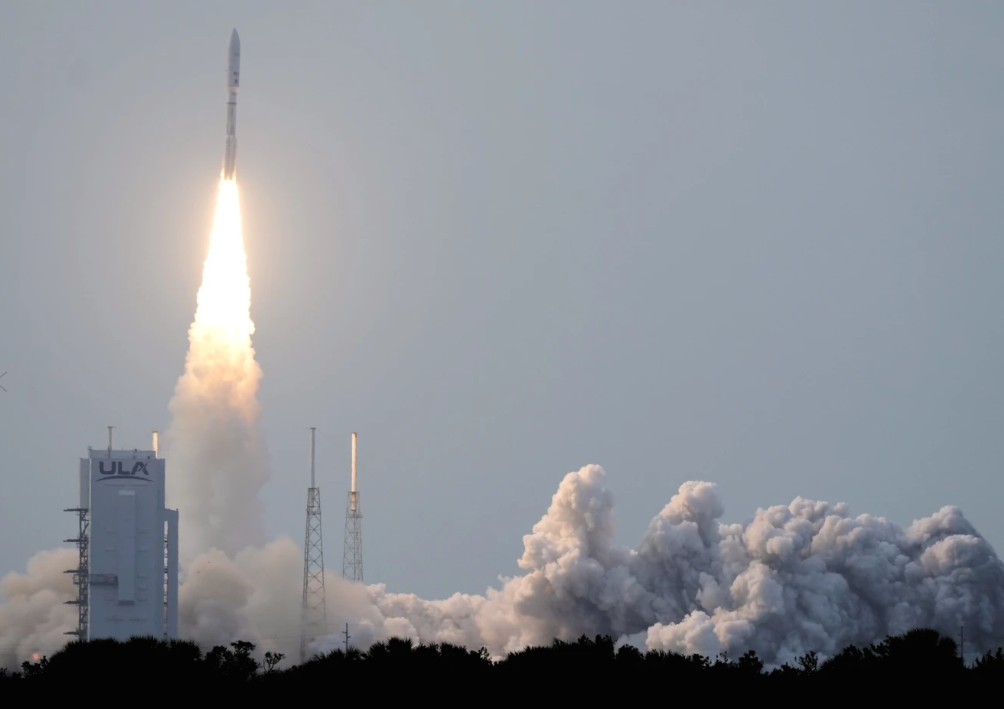Amazon successfully launched its first batch of internet satellites into orbit on Monday, marking its entry into the growing mega-constellation market, which is currently dominated by SpaceX’s Starlink network. The United Launch Alliance’s Atlas V rocket carried 27 satellites from Amazon’s Project Kuiper into space. These satellites, named after the distant region beyond Neptune, will eventually settle into an orbit approximately 400 miles (630 kilometers) above Earth.
This launch follows a 2023 test mission, which also used an Atlas V rocket, though the latest satellites feature significant upgrades. One key improvement is a mirror film coating designed to reduce sunlight reflection, addressing concerns from astronomers who argue that low-orbiting satellites interfere with stargazing.
Amazon, founded by Jeff Bezos, aims to deploy more than 3,200 satellites to provide affordable, global broadband service. SpaceX, led by Elon Musk, has already launched over 8,000 Starlink satellites since 2019, with more than 7,000 still operational. Other satellite networks, such as Europe’s OneWeb, are also working on large-scale constellations in higher orbits.
To support Project Kuiper, Amazon has purchased several rocket launches from United Launch Alliance, Blue Origin, and others. Despite extensive testing, Amazon’s team acknowledged that some lessons can only be learned during actual spaceflight.
Rajeev Badyal, vice president of Project Kuiper, expressed optimism about the mission, stating, “No matter how the mission unfolds, this is just the start of our journey.” A previous attempt to launch earlier in the month had been delayed due to bad weather, but this launch was successfully rescheduled.














